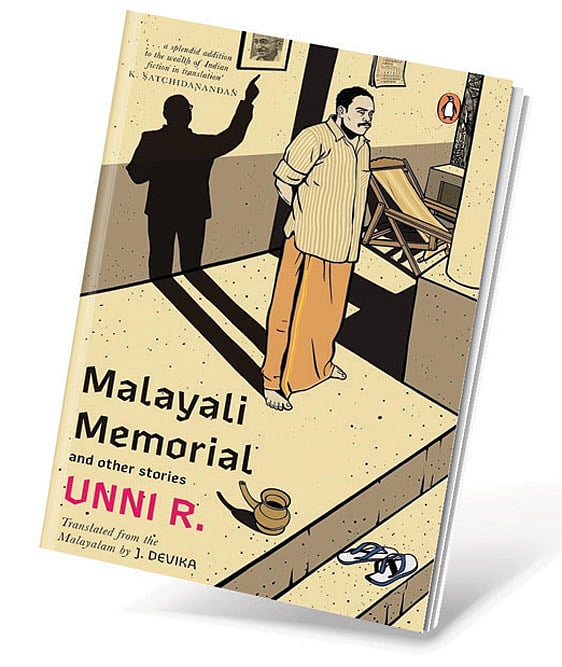Trickster Tales

WEDGED BETWEEN THE fertile crescent of the Western ghats, and the monsoon laden winds across the sea on the other, Kerala has had its fair share of poets, storytellers and traditional goddesses and demon dancers. Add to this the pepper vine and the cornucopia of spices and aromatics and you may understand why Kerala has attracted argosies of merchants and messiahs each peddling their own spiel.
Defining this vortex of ambiguities the short stories in this collection by Unni R take on the guise of the “Trickster” a stock figure in folk tales most often seen in closely knit communities which are connected by a web of intrigues. Just as in our urban environment the loquacious taxi-driver is credited as being a man of boundless anecdotes, in Kerala, the man at the corner teashop is often considered to be a person with his finger on the pulse of the community’s indiscretions. Unni’s narrators are often your local tea shop wit, and perpetrator of rare and ribald tales.
Like with some of the earlier writers from Kerala who appear to have an obsession with the body’s involuntary ejections, it’s tempting to suggest that the best way of summing up this collective need to let rip should be named “the irresistible lightness of evacuation”. Unni more than lives up to this brotherhood. One may be forgiven for relating it to the Keralite’s sartorial choice, the flowing white, or cross checked mundu, veshti or dhoti. Obviously like hoisting or lowering a flag it allows for a certain ease of use in times of need.
Openomics 2026: Continuity and Conviction
06 Feb 2026 - Vol 04 | Issue 57
The performance state at its peak
It’s wholly to the translator J Devika’s sangfroid that she’s able to render some of these body-rending episodes with a certain detachment. Having edited a selection of short stories by a whole raft of writers in Feeling Kerala, Devika is more than capable of dealing with often disturbing and torrid situations.
This feature apart it is an extraordinarily diverse collection of situations that Unni creates. Sometimes it’s just a chance encounter on a train, or in an office where transactions have been hacked. It’s in the longer stories that he comes into his own. With his artfully directed hits and thrusts of sarcasm and satire, he brings to mind a martial arts practitioner using a flashing urumi, or whip-sword. You feel the sting only at the end when the whiplash of his laconic manner suddenly finds its mark.
Take the example of the story ‘Malayali Memorial’ that is apparently about the trials of a certain Santosh Nair who is plagued by the stigma of having been asked to take on the role of Ambedkar in the annual school play when he was eight. He comes to the narrator for support. The narrator pretends to be a docile spectator, first as a fellow student, later as a hen-pecked husband of a militantly inclined wife and two young daughters. They can’t understand why he should indulge Santosh in his feeling of being persecuted because people still refer to him as Ambi, short for Ambedkar.
Unni’s story echoes Ambedkar’s poignant repudiation of being a Hindu that he wrote in 1935: “I had seen the misfortune of being born with the ‘Untouchable Hindu’ stain; that was not in my hands…I will not die as a person who calls himself a Hindu!” As the narrator confesses, “I am going to tell them it was Ambedkar whom I freed from Santosh Nair.”
There are many versions of Santosh and of Ambedkar jousting in these stories. Not always with a happy ending.

